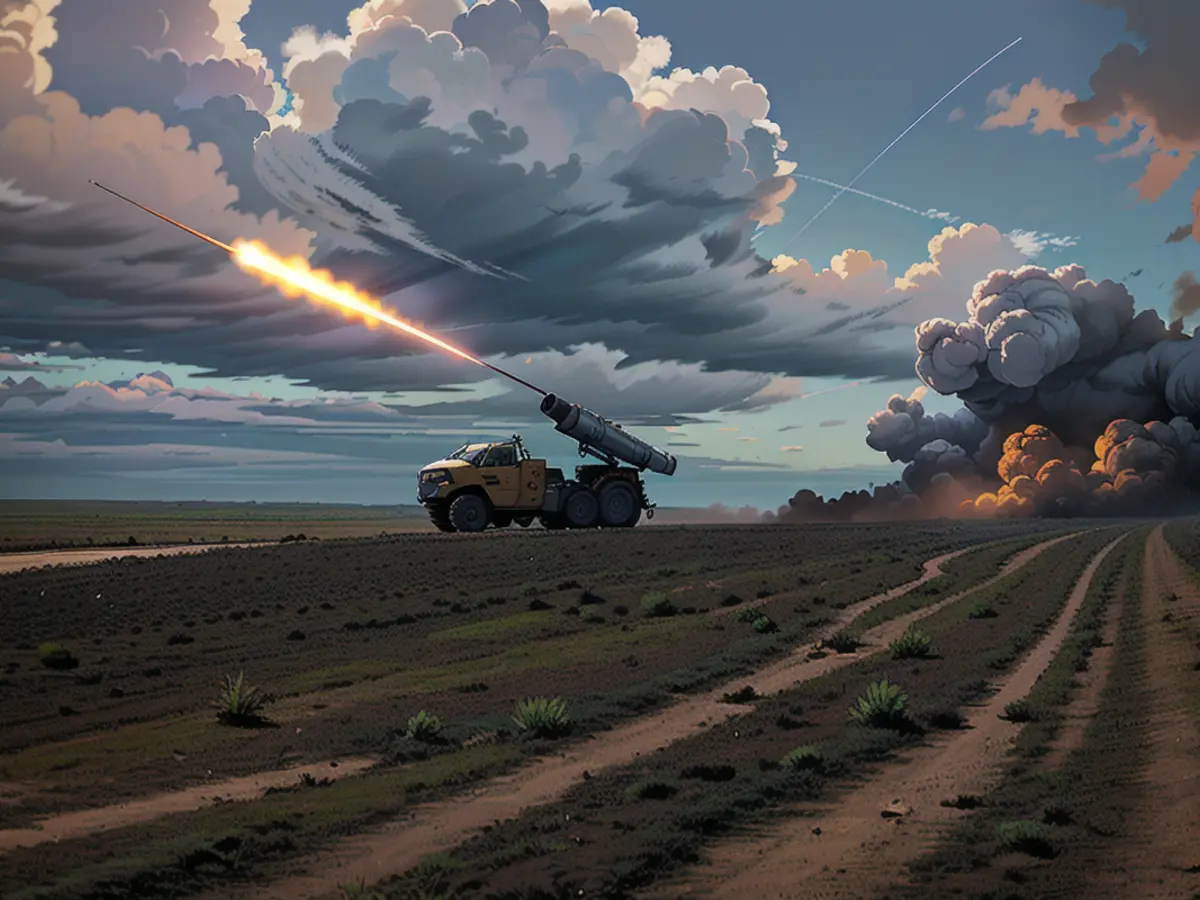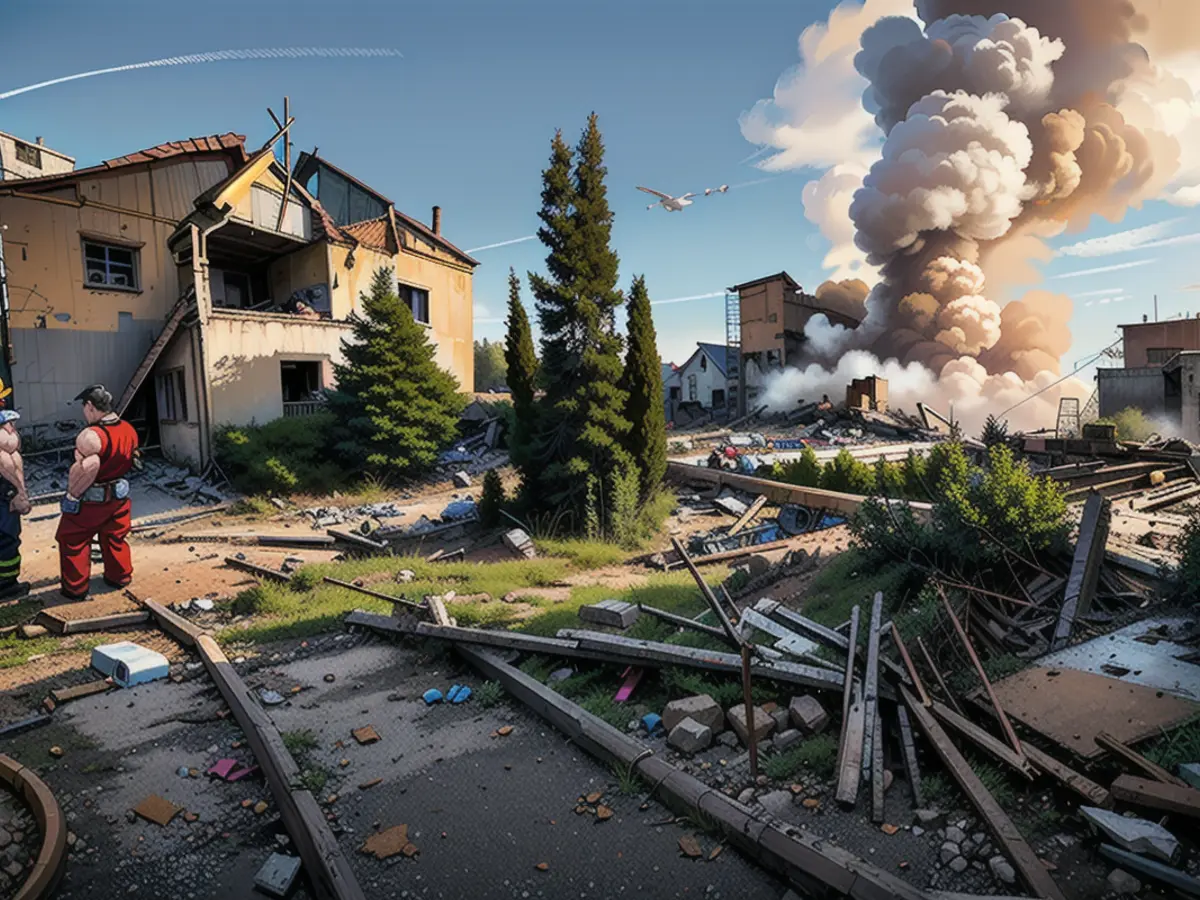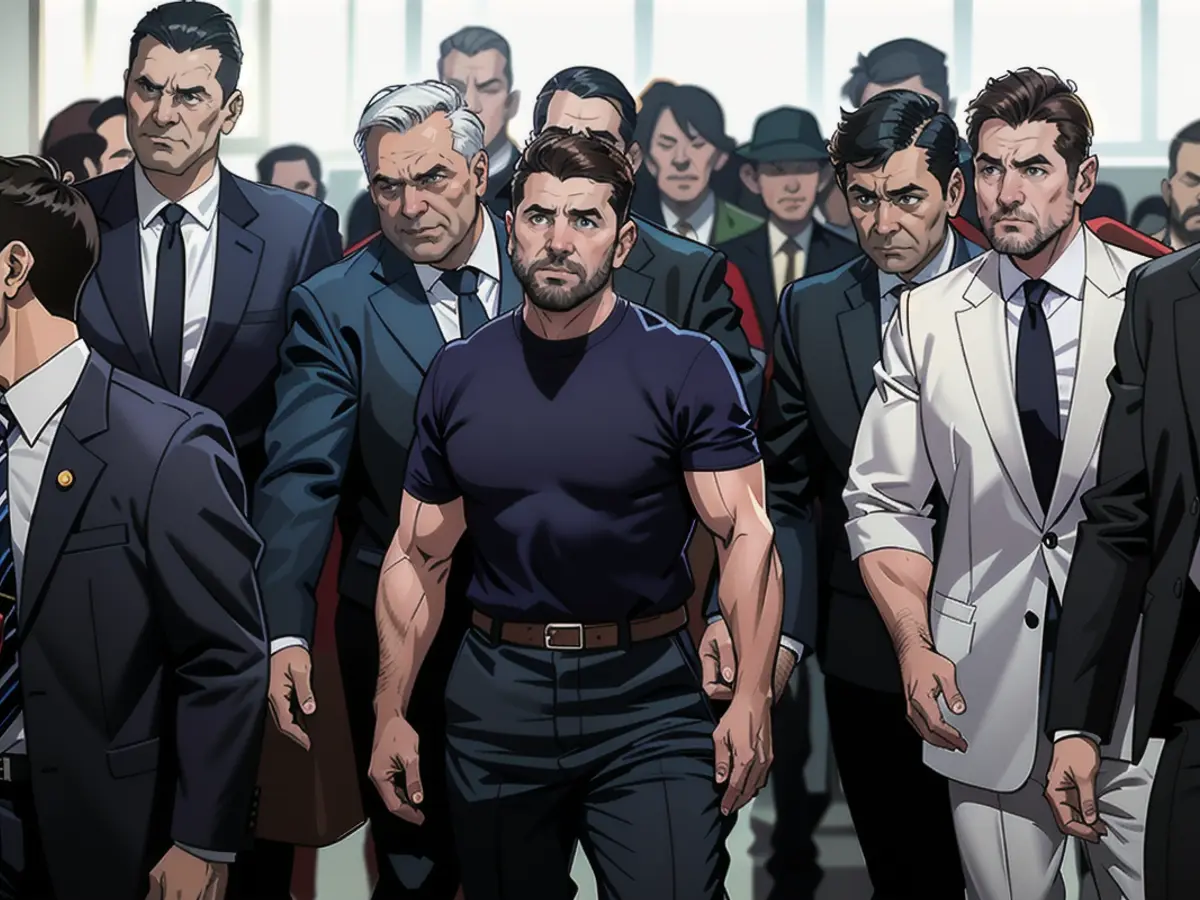Zelensky unexpectedly attends a defense conference in Singapore, advocating for Ukraine's peace plan amidst Russian progress.
The unexpected appearance of Zelensky at the gathering highlights Kyiv's unwavering commitment to engage with the international community and promote peace in Ukraine more than two years after Russia's destructive invasion.
The Ukrainian leader's journey outside the war-torn nation has been rare, and earlier this month, he canceled his international engagements due to his troops' defense against a sudden Russian offensive in Kharkiv's northeastern region.
A CNN team at the summit witnessed Zelensky and his team's arrival.
Zelensky's participation in the Shangri-La Dialogue in Singapore offers a unique chance for him to potentially engage with defense officials from across the Asia-Pacific, including China, which forged stronger ties with Moscow since the war.
Defense secretaries from the US, Australia, Japan, and South Korea, along with China's defense minister, Dong Jun, are predicted to be in attendance for the three-day event.
Zelensky announced his arrival at the summit via a statement on X, stating that he will hold "several meetings," including with US Defense Secretary Lloyd Austin, Singapore's president and prime minister, and Timor-Leste's president. The Pentagon revealed on Saturday that Austin will meet Zelensky and Ukrainian Defense Minister Rustem Umerov at the Shangri-La on Sunday to discuss the current battlefield situation in Ukraine and reaffirm the US's commitment to assisting Ukraine in defending itself against Russian aggression.
Zelensky's trip to Singapore comes shortly before a Ukraine-supported peace summit in Switzerland, as pressure grows for Kyiv to garner international backing for its peace plan, particularly concerning the US presidential elections, which might impact Kyiv's access to support.
Ukraine relies extensively on international funds and arms, and lately, they have faced shortages of personnel and equipment. The congressional wrangling in the US coupled with NATO nation's inadequate supply have left Ukraine's forces significantly outmatched against Russia. In late April, a $61 billion aid package for Ukraine was ultimately passed by the US.
On Friday, Zelensky was in Sweden for a summit with Northern European leaders, emphasizing the need for more air defense systems and weapons for Ukraine, and global efforts to persuade Russia to make peace.
Similar concerns apply in Asia, as governments across the region closely observe the conflict, particularly those facing territorial disputes with another powerful and authoritarian neighbor, China.
Some governments in the region view the conflict in Europe as a potential contributor to the security climate in Asia. Russia has been cultivating a relationship with North Korea, which some speculate to have provided Russian forces with munitions recently.
Moscow and Beijing have also deepened their strategic partnership during the war, with the US asserting that China has been propelling Russia's defense industrial complex, and tensions between China and the West have been exacerbated over China's close ties with the Kremlin.

During a meeting Friday, Austin discussed these issues with his Chinese counterpart, Dong Jun. Austin expressed to China that there would be consequences if Beijing continued to support Russia militarily, according to a senior US defense official after the meeting.
Dong stated that China, insisting neutrality in the conflict, had abided by its pledge not to furnish either side with weapons and had imposed stringent export controls on dual-use products, according to China's spokesperson.
Avoiding a US-China confrontation, China opted not to send a delegation to the upcoming Ukraine-backed peace conference in Switzerland, citing their desire for a conference that would receive "recognition from both Russia and Ukraine, equal participation by all parties, and impartial deliberation of all peace plans."
Zelensky's ten-point peace proposal envisions Russia withdrawing all its troops from Ukrainian territory and the restoration of Ukraine's recognized international boundaries.
Zelensky has previously made unexpected appearances at high-profile global summits to draw attention to Ukraine's plight and fortify connections. He made a memorable entrance at last year's Group of 7 (G7) summit in Japan.
It's unclear if Zelensky intends to meet with any Chinese officials during his time in Singapore. Russia will not participate in the gathering.
In a discussion with Russia's state news agency RIA Novosti, Russian Foreign Minister Sergey Lavrov suggested that China could coordinate a peace conference featuring representatives from both Russia and Ukraine.
Zelensky's unexpected appearance at the Singapore summit coincides with Biden's recent shift in policy to permit Ukraine to use American munitions limited to strikes close to the border with Kharkiv, as per US officials' reports from Thursday. Key European leaders have also hinted at a similar shift.
The US elections, however, have generated doubt over the ongoing US commitment to Ukraine's war effort, exacerbating the need for Ukraine to secure a peace agreement that suits them, particularly considering the potential implications of the election results should the battle continue into the next year.
CNN team: Ivan Watson, Xiaofei Xu, Alex Stambaugh, Natasha Bertrand, and Sharon Braithwaite collaborated on this story.

Read also:
Zelensky's participation in the Shangri-La Dialogue in Singapore provides an opportunity for him to engage with defense officials from various countries in Asia, including China, which has strengthened its ties with Russia since the war. The peace summit in Switzerland, which Ukraine supports and is approaching shortly, places pressure on Kyiv to garner international backing for its peace plan, particularly considering the potential impacts of the US presidential elections on Kyiv's access to support.







